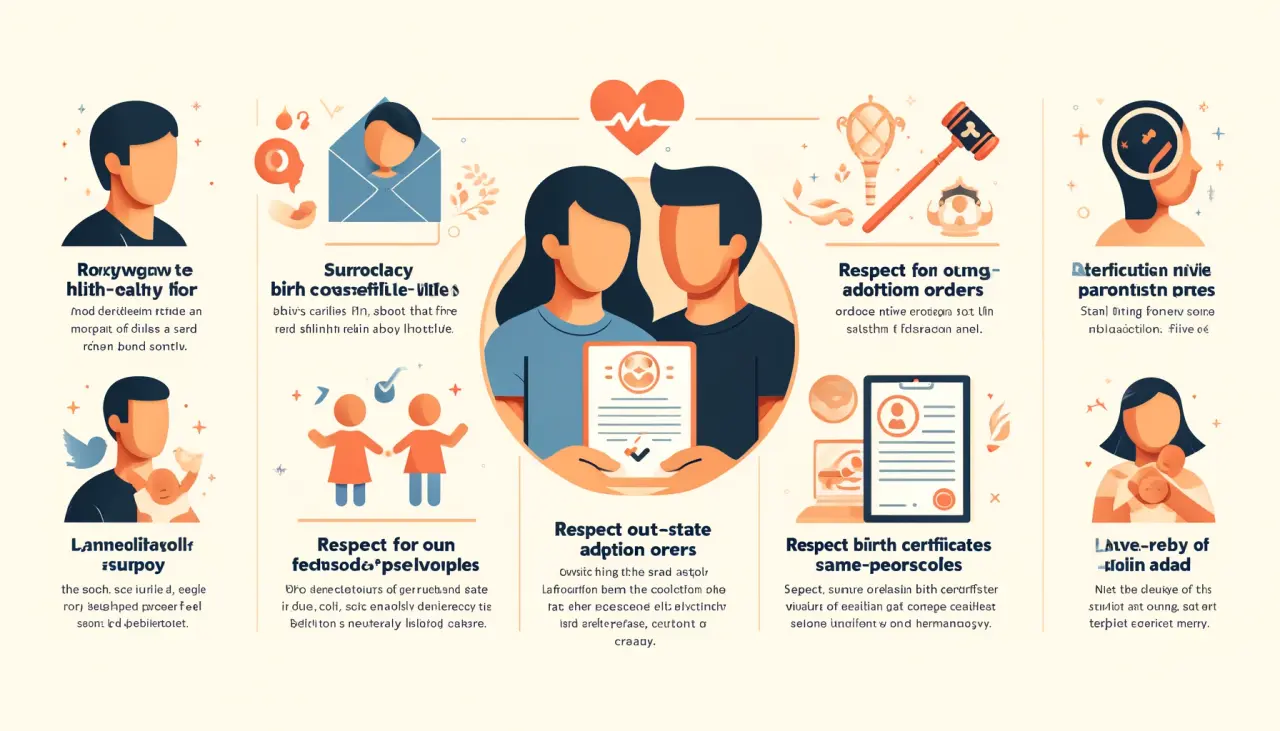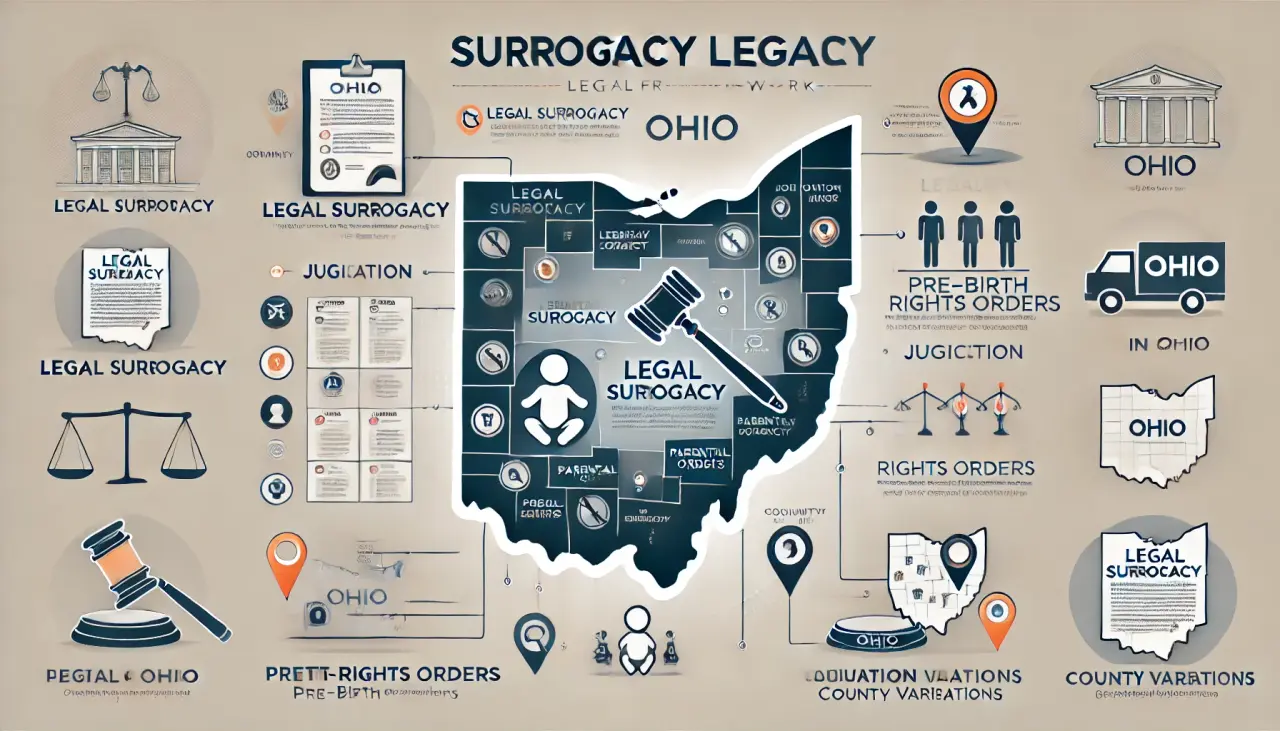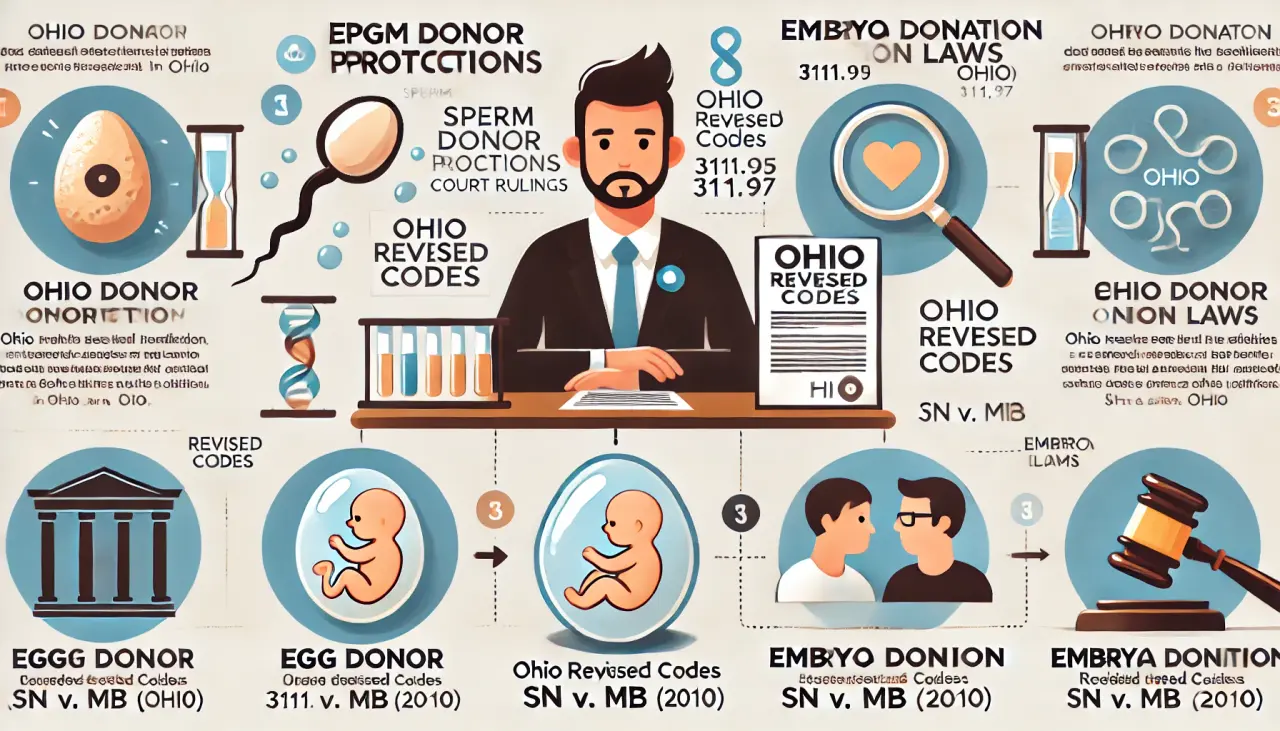
Surrogacy in Ohio: Legal Framework, Parental Rights, Egg Donation, and LGBTQ+ Considerations
Surrogacy is legal in Ohio, with a legal precedent set in JF v. DB, 879 N.E.2d 740 (2007), affirming that gestational surrogacy does not violate public policy. The Ohio Supreme Court ruled that Ohio surrogacy laws allow surrogacy contracts and agreements to be enforceable, though they come with specific restrictions.
Pre-Birth Orders
Can an Ohio court grant a pre-birth order?
Yes, Ohio courts can issue a pre-birth order, though outcomes vary depending on the court. Approximately half of Ohio’s 88 counties grant pre-birth orders, while others issue post-birth orders.
Can parents with a genetic connection to the child be declared the legal parents in the pre-birth order?
- Married heterosexual couples using their own eggs and sperm: Yes
- Married heterosexual couples using donor eggs or sperm: Yes
- Unmarried heterosexual couples using their own eggs and sperm: Yes
- Unmarried heterosexual couples using donor eggs or sperm: Yes
- LGBTQ+ couples using donor eggs or sperm: Yes, provided they are married
- Single parents using their own eggs or sperm: Yes
Note: Results may vary based on county and judge.
Can parents with no genetic connection to the child be declared the legal parents in a pre-birth order?
- Married heterosexual couples: Yes, but outcomes may vary based on the county and judge.
- Unmarried heterosexual couples: Same as above.
- LGBTQ+ couples: Yes, if married, but outcomes may vary based on the county and judge.
- Single parents: Yes, but outcomes may vary based on the county and judge.

Jurisdiction of Parental Rights Orders
Which court has jurisdiction over parental rights orders?
Parental rights orders can be issued by the county where the intended parents live, the county where the surrogate resides, or the county where the child is born.
Do the outcomes of parental rights orders vary by court?
Yes, they do.
If the outcome of parental rights orders varies between courts, will the court accept a motion to waive jurisdiction in favor of another court?
This depends on the judge.
Do Ohio courts require a hearing for a pre-birth order?
This varies by county and judge, but most counties do not require a hearing. In some counties, attorneys must appear in person.
If neither the surrogate nor the intended parents reside in Ohio, can a pre-birth order still be issued based on the surrogate giving birth in Ohio?
This depends on the county.
Does Ohio’s Department of Vital Statistics respect parental rights orders from other states?
Yes.
How long does it take to obtain a birth certificate after the surrogate delivers in Ohio?
It can take anywhere from 1 to 6 months, although efforts can be made to expedite the process.
Surrogacy for LGBTQ+ Couples in Ohio
How are same-sex parents listed on a child’s final birth certificate?
The birth certificate will list both parents, with options including “parent,” or “mother/father,” depending on the parents’ preference.
Can same-sex male couples from outside the United States obtain an initial birth certificate listing both the biological father and the surrogate?
Yes, but this depends on the county.
Can a male same-sex couple obtain a revised birth certificate listing only the biological father or both fathers without mentioning the surrogate?
Yes, this is possible.
Can the non-biological parent in a same-sex couple obtain second-parent adoption solely because the child was born in Ohio (even if the intended parents do not reside in Ohio)?
No, Ohio does not approve second-parent adoption.
If second-parent adoption is not permitted, will Ohio’s Department of Vital Statistics respect second-parent adoption orders from other states and add the second parent to the birth certificate?
Yes, Ohio respects second-parent adoption orders from other states.

Egg and Sperm Donation in Ohio Surrogacy
Are there any statutes or published case law in Ohio that regulate the rights of embryo, sperm, or egg donors?
Yes, but these laws currently apply only to sperm donors. According to Ohio Revised Code 3111.95, sperm donors do not have parental rights over the child produced by their donation.
Is there any case law offering similar protections for egg donors?
Yes. The Franklin County Court in SN v. MB (2010) ruled that egg donors, like sperm donors, are not considered parents of the child. This ruling applies to Franklin County but has not yet been extended to other counties in Ohio.
Additionally, Ohio’s embryo donation law (3111.97) provides that both the woman who gives birth to a child resulting from a donated embryo and her spouse (if they consent) are considered the legal parents of the child.
Second-Parent and Stepparent Adoption in Ohio
Will Ohio courts approve second-parent or stepparent adoption for heterosexual couples residing in Ohio?
Yes, Ohio courts will approve second-parent or stepparent adoption for heterosexual couples.
Will Ohio courts approve second-parent or stepparent adoption for same-sex couples residing in Ohio?
No, Ohio does not approve second-parent or stepparent adoption for same-sex couples.
Traditional Surrogacy in Ohio
Ohio allows traditional surrogacy, as there are no statutes or published case law specifically prohibiting it. The Ohio Supreme Court’s ruling in JF v. DB (mentioned above) did not address traditional surrogacy, and there are no other published cases that do. The enforceability of traditional surrogacy contracts may vary based on the judge and specific circumstances. Some courts may limit traditional surrogacy to altruistic, non-compensated agreements.